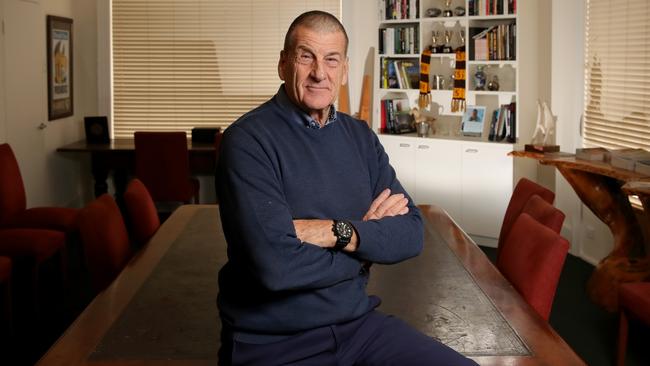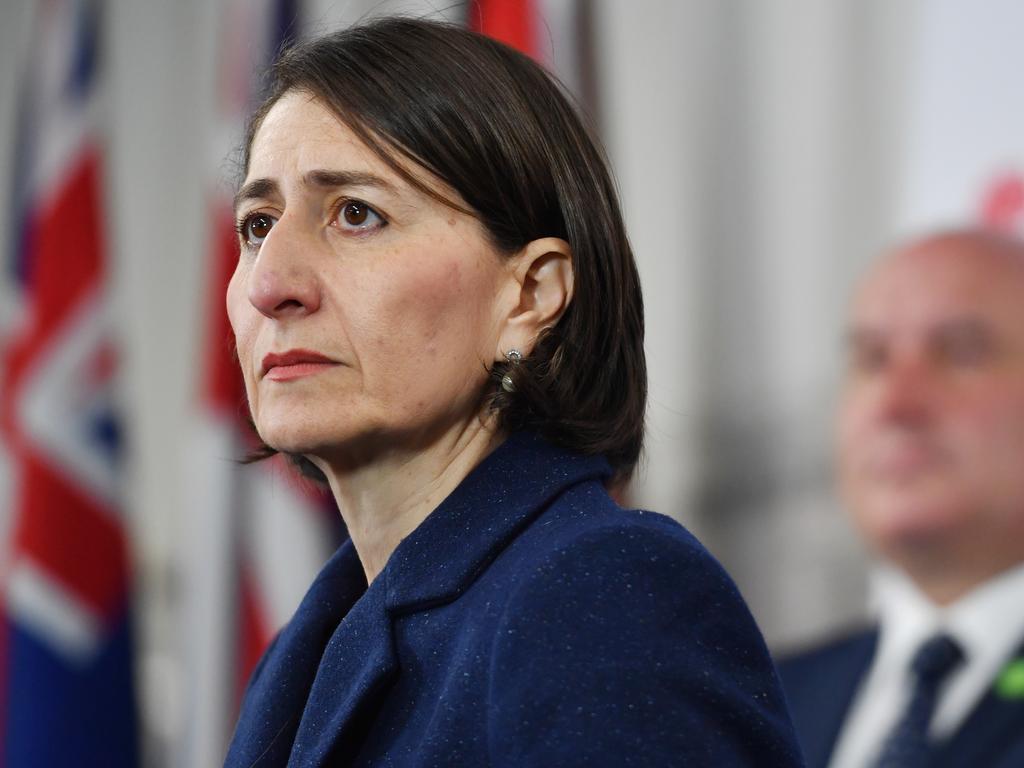Premiers bordering on madness, says Jeff Kennett
Former Victorian premier Jeff Kennett says small state leaders are just grandstanding by keeping borders shut.

Jeff Kennett has dismissed as “madness’’ the refusal of most states to open their borders and urged the nation’s leaders to drive a cohesive and creative reform agenda that ignites confidence when the pandemic welfare expires.
The former Victorian premier has dismissed as “grandstanding’’ the decision by the smallest states to keep their borders shut, arguing it is retarding small to medium businesses, potentially leading to the large-scale destruction of tourism and hospitality ventures. Mr Kennett also has warned the political establishment that infrastructure alone will not resurrect the national economy, arguing for a two-pronged blueprint for recovery that inspires Australians to move forward once the virus is contained.
He said the need for swift, well-planned responses to the virus was exaggerated by Australia’s brawling with China, which he argued could have as severe an impact on the economy as the pandemic.
Mr Kennett said premiers should seriously consider implementing their own versions of his government’s major events strategy, which bolstered Victoria’s shattered economy in the early 1990s after the forced sale of the state-owned bank, crippling debt, union mayhem and galloping interstate migration.
‘‘We’ve got to let the public know we’ve got to flatten the economic curve and there is light, pleasure, happiness at the other side,’’ he told The Weekend Australian in a wide-ranging interview.
Mr Kennett warned that governments must urgently plan for the six months from the end of September, when government-funded assistance is expiring, arguing that a straight economic response would not be enough.
This was because, he said, of the capacity for the pandemic to have such a profound impact on the economy that it will cause irreparable damage to some sectors. He said national cabinet should continue to operate on a needs basis and that political leaders across the country had acted strongly in the face of the virus. “The question now is what is government going to do to rebuild public confidence (so) that we can reopen our economy,’’ he said.
“But then also to add nuances to it that will boost confidence and ultimately provide activity/employment for those who have lost their jobs and will not regain them because of changes that have taken place.’’
He said it was ludicrous that so many states were not opening up their borders.
“With due respect to the states that still have border controls, it’s absolutely absurd,’’ Mr Kennett said.
“It’s unnecessary, it’s grandstanding and it is reducing the opportunity for their states, for their small to medium businesses to get going again.
“If we choose not to go overseas then we should be able to travel freely within Australia, for goodness sake. It’s madness, just madness.’’
Mr Kennett transformed Victoria between 1992 and 1999 from a rust-belt state with a shattered manufacturing sector into a national engine room.
This was on the back of dramatic budget efficiencies mixed with a “can do’’ culture fuelled by the Australian Grand Prix, the arts and sport.
Mr Kennett said culture — specifically the arts — should be crucial in encouraging people back out on to the streets when it was safe to do so.
He called for the Victorian government to do what it could to ensure the Victorian Spring Racing Carnival goes ahead in a workable form, plus the AFL grand final, in whatever form was possible, as part of the rebuilding of the nation’s confidence.
Mr Kennett said the role for political leaders was to act as community pied pipers, although obviously as forces for the good of the community.
“You can’t do it overnight. It will take a year/two years to really do that,’’ he said of the post-pandemic rebuild.
The arts were crucial, he said. One example was using entities such as the Melbourne Symphony Orchestra to play on the streets to buoy the community.
“I want them on the streets, I want them everywhere. I want people to be excited. More of the same isn’t going to do it,’’ he said.
Mr Kennett said he was deeply worried about the potential for the Chinese trade war to have as big an economic impact as the virus.
“That could be another corona-like virus in terms of its impact on our economy,’’ Mr Kennett told The Weekend Australian.
“We don’t know where it’s going. The world should know how it started so that we can educate ourselves for the future.’’
Mr Kennett said he was bewildered by the Victorian government’s pursuit of China’s Belt and Road Initiative, when it became the only state to join the BRI when it signed an MOU in 2018.







To join the conversation, please log in. Don't have an account? Register
Join the conversation, you are commenting as Logout